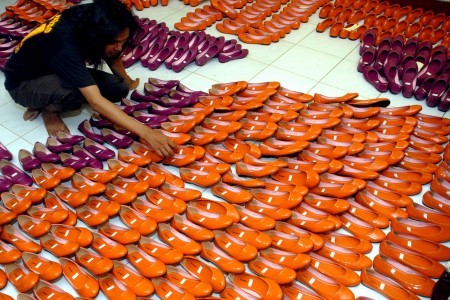Popular Reads
Top Results
Can't find what you're looking for?
View all search resultsPopular Reads
Top Results
Can't find what you're looking for?
View all search resultsGarments, apparel, shoes: Indonesian sunset industries?
While Indonesia’s labor costs were competitive initially, rising wages made it less attractive compared to lower-cost countries like Vietnam and Cambodia.
Change text size
Gift Premium Articles
to Anyone
I
ndonesia's manufacturing sector in the garment, apparel and shoe industries began to flourish in the 1970s and 1980s as the country embarked on industrialization.
Initially, Indonesia primarily focused on exporting raw materials such as oil and gas, but the government started to promote labor-intensive industries such as textiles and footwear to create jobs and increase export revenues. The availability of a large, relatively low-cost labor force, coupled with foreign investment, enabled these industries to grow.
Indonesia's proximity to major markets such as the United States, Europe and Asian countries also supported its emergence as a manufacturing hub.
By the 1990s, Indonesia became a significant player in the global textile and garment industry. The establishment of export processing zones (EPZs) helped attract multinational companies to invest in Indonesia. Foreign direct investment (FDI), particularly from Japan, South Korea and Taiwan, fueled the growth of textile factories and shoe manufacturing plants.
One of Indonesia's biggest successes was in the footwear industry, where major international brands like Nike and Adidas outsourced their production. By the early 2000s, Indonesia had become one of the world's largest exporters of footwear and apparel.
But in the 2000s, competition from neighboring countries like Vietnam and global manufacturing giants like China intensified. Vietnam became a major competitor because of its aggressive industrial policies, free trade agreements (FTAs) and reputation for quality production. China, with its massive scale, efficient supply chains and advanced technology, set a high bar for other nations.
Indonesia faced several challenges in the following areas:


















